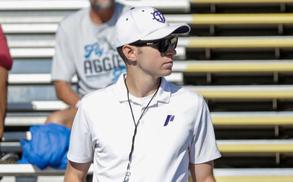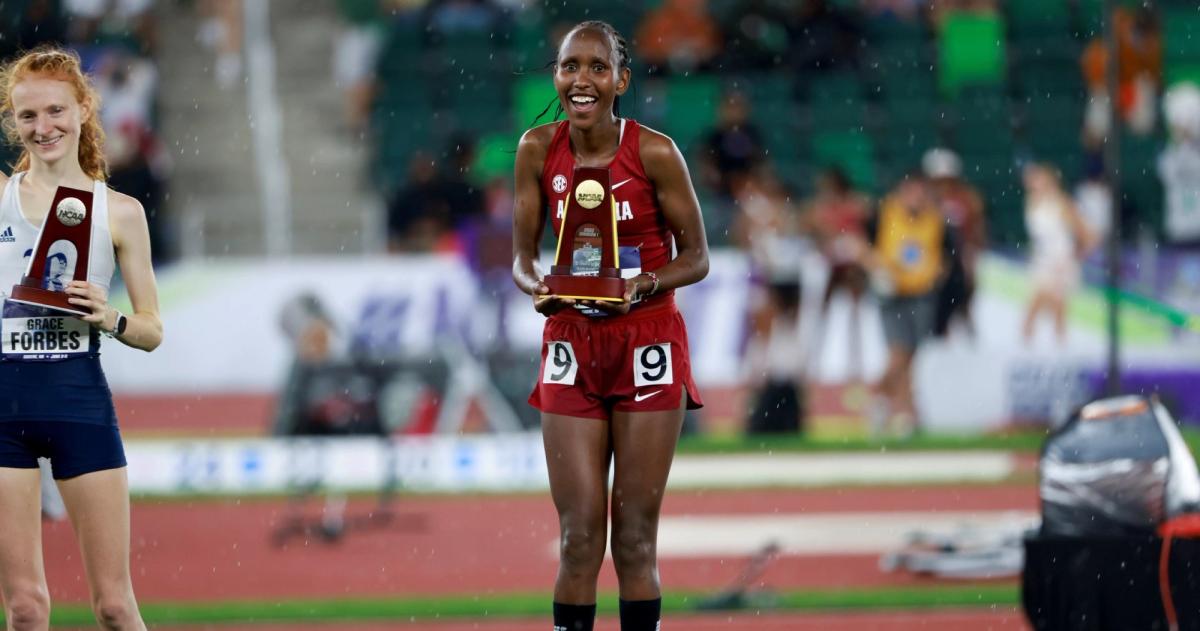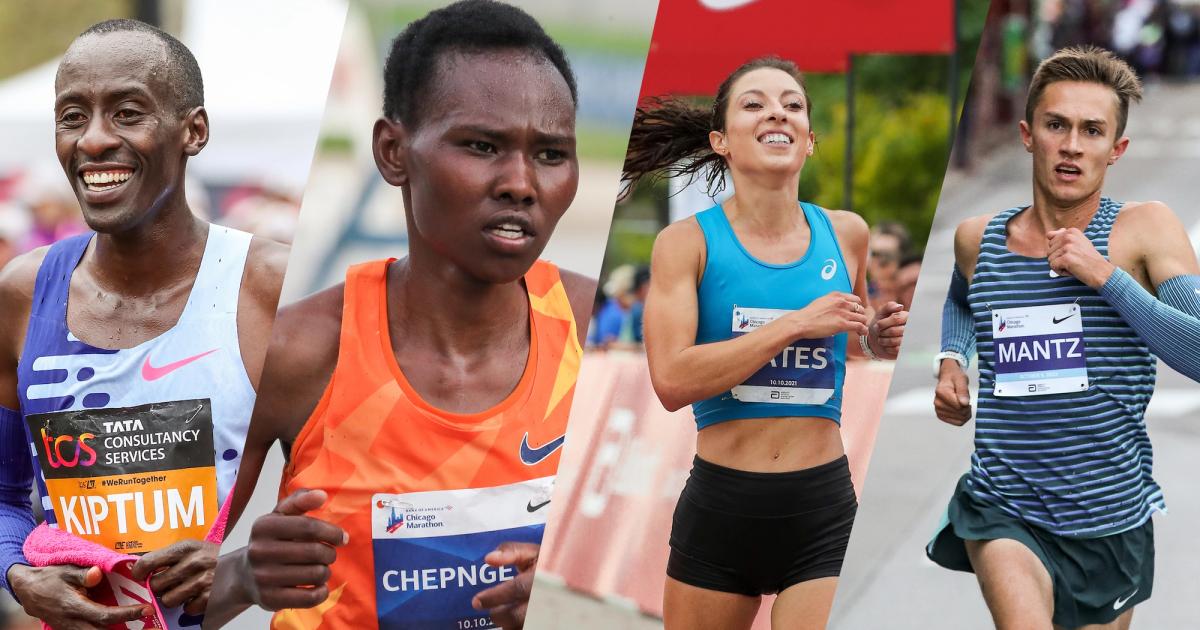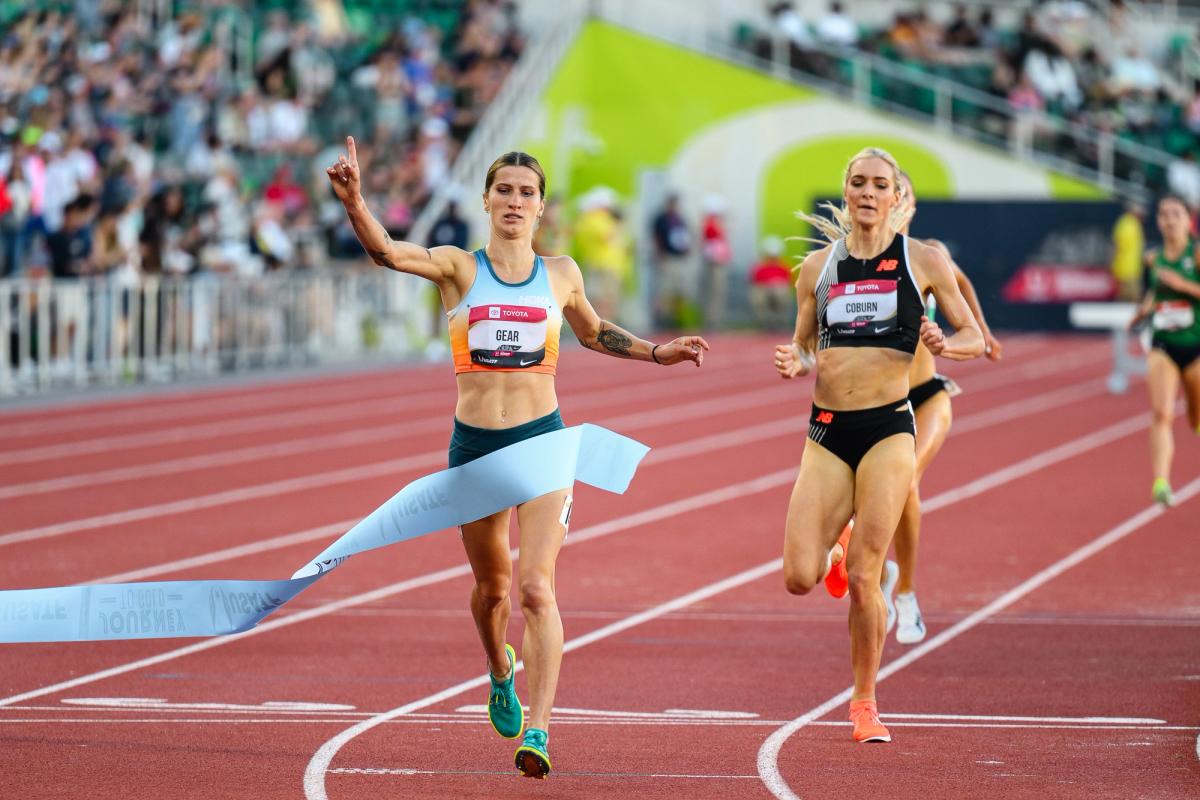By Kyle Merber
October 18, 2023
The HOKA NAZ Elite squad had been without a head coach for a few months, and yet the performances were going so well that you likely wouldn’t have known. That was in large part thanks to interim and still-assistant coach Jenna Wrieden, and executive director Ben Rosario, who successfully steered the ship while temporarily without a conventional captain.
And when the results of the long search was finally announced to be Jack Mullaney, I admittedly did not know who that was. There is a tendency for brands to hire former professional athletes, which is a reasonable enough strategy, given their obvious expertise and experience. But there must have been something about Mullaney that made him the best fit for the team and so I reached out to learn more. He did not share until the end of the call that he is a day one newsletter subscriber!
Congratulations on the new role! What's the one thing that you're most excited about whether that's team-wise or maybe even on a personal level because I know this is a big move for you?
"I think the biggest thing is I'm really just excited about being able to work with a group of awesome human beings. At the professional level, everyone's a really good athlete. But what continues to impress me as I meet with the athletes, the staff and the board members associated with the team, is that everyone is just a genuine, good person. And when you're around good people, that sows the seeds for success – I'm just really excited to work with them. It makes me feel like anything is possible.
And as it relates to the team, I think if you zoom out and look at the history of NAZ Elite since its inception in 2014, it's been this steady growth over time. And we're at a pretty cool place right now – we’re the best that we’ve ever been, and I'm really excited to join the team at this time."
You spent seven years at the University of Portland, and therefore you're probably heavily influenced by Rob Conner, if that's fair to say. My antiquated understanding of his training is that it’s built on high mileage and long intervals. Tell me if I'm far off on that! How would you describe your coaching philosophy?
"I owe so much of my career and just opportunity in the sport to him. There's nobody that I've been around who's more authentic and true to who he is. To everybody, he’s the same person – he’s the same to our athletics director, as he is to me, as he is to the athletes. And I just appreciate that about him so much.
I certainly have taken some things from him. But I also learned a lot from Ian Solof, the women's coach at the University of Portland. I’m a reader, I’m big into coaching education classes, and I have a network of coaches that I talk to about training.
I would say that for me, and especially at this level, it's a lot more about tailoring the training to the individual and understanding what has worked well for them in the past, what their physiology would indicate would work best for them now, as well as what, if any, limitations they might have. So it's not about a system for me as much as it is about the individual."
A unique aspect of the NAZ Elite program is that you kind of have three coaches now on the roster so you have great resources in Jenna (Wrieden) and Ben (Rosario), as well. But for a lot of the athletes this is their third or fourth coach in a pretty short period of time. How do you make it a smooth transition at the most important time of a lot of the athletes’ careers?
"My top priority in starting here is to build connections with the athletes and really earn their trust. And you certainly don't do that by coming in and making a whole bunch of decisions right away. I want to come in and talk to athletes and observe for a little bit and figure out the things that are going well before making any decisions.
And to your point about having Jenna and Ben on staff, I think that's a huge advantage for us because it's not just my expertise that we're pulling from. It's going to be a real collaborative effort. Jenna and I are going to be very aligned moving forward in terms of coaching the athletes. And we want it to be so that whether I'm at a workout, or whether she's at a work out, what the athletes are getting is going to be something very similar because it's flowing from a very aligned thought process."
You kind of touched on this in the idea that you're coaching to the individual, rather than employing a specific system. And in the team’s press release announcing your hiring, you said something to the effect that you can coach the modern athlete, and that you're up to date with all the latest training methodologies. Explain all that like I'm five years old. What training methodologies are you most keen on, and how is coaching today different than it would be, say, 10, 20 years ago?
"I can't necessarily say how it was 20 years ago because I wasn't coaching at that time and I wasn't an athlete either. I was ten years old! But I think I think now, athletes, more than ever, want to take an active role in their training process and they want a collaborative approach when it comes to determining the training that works best for them, rather than more of an authoritarian structure that's maybe been more common in the past. And that certainly doesn't mean that that was the case for everybody.
As for certain methodologies, I think I would consider myself a student of the sport. For instance, obviously threshold training is something that's become very popular and I don't think it's something where you should just say, ‘oh, because it's popular, that's what we have to do.’
I think it's my responsibility as a coach to do the research to see what the merits of it are and if there could be some benefit for a particular athlete rather than simply adopting it as a religion. But that would apply for anything that becomes popularized, or even for training methodologies that maybe were around 30, 40, 50 years ago, that have fizzled out. I think it's my responsibility to continue to read and research so that when an athlete comes to me, I can pull from a variety of different ideas and approaches to find one that works best for them."
My longtime coach, Frank Gagliano, was a football coach previously, and he was not a runner. Your background is really unique in a similar way – did not compete in college and yet, you know, now you're coaching one of the best distance squads in the country. When did you think that you could make a career out of this?
"I feel like we can leave a lot on the table as coaches if we're only sourcing the running world for our inspiration, for our approaches, for the things that we value, for our philosophies. I was a musician growing up, and I played a variety of different sports and I worked a job in the business world straight out of college for a little bit. And So I've always tried to see my background as a strength rather than as a weakness. I didn't run 27-flat. I didn't make the Olympics as an athlete or shoot, I didn't even run Division One in college. And that's okay.
As to your question about when I first believed that I could coach at this level, it happened over time. Going back to Rob Conner, one of the things that he told me when he first hired me was, ‘there's a lot of things that this program does well at Portland, but there's some gaps – your job is to fill the gaps as best as you can.’
And so I just started trying to fill the gaps. One of those was in the weight room. So I learned as much as I could about strength training and implemented a regular strength training program for our team. Some of the things that we do from a cultural perspective were ideas that I generated, and over the course of time I started to pick up more and more things and it got to a point where we had some athletes graduate from the program and ask if I would coach them post collegiately. And once I started to do that, and I was trying my hand at coaching them directly, writing their training and that sort of thing and having some success with it, that's when I started to believe that I could do this at this level."
I know we've never spoken before, but I'd come run for you. You won me over.
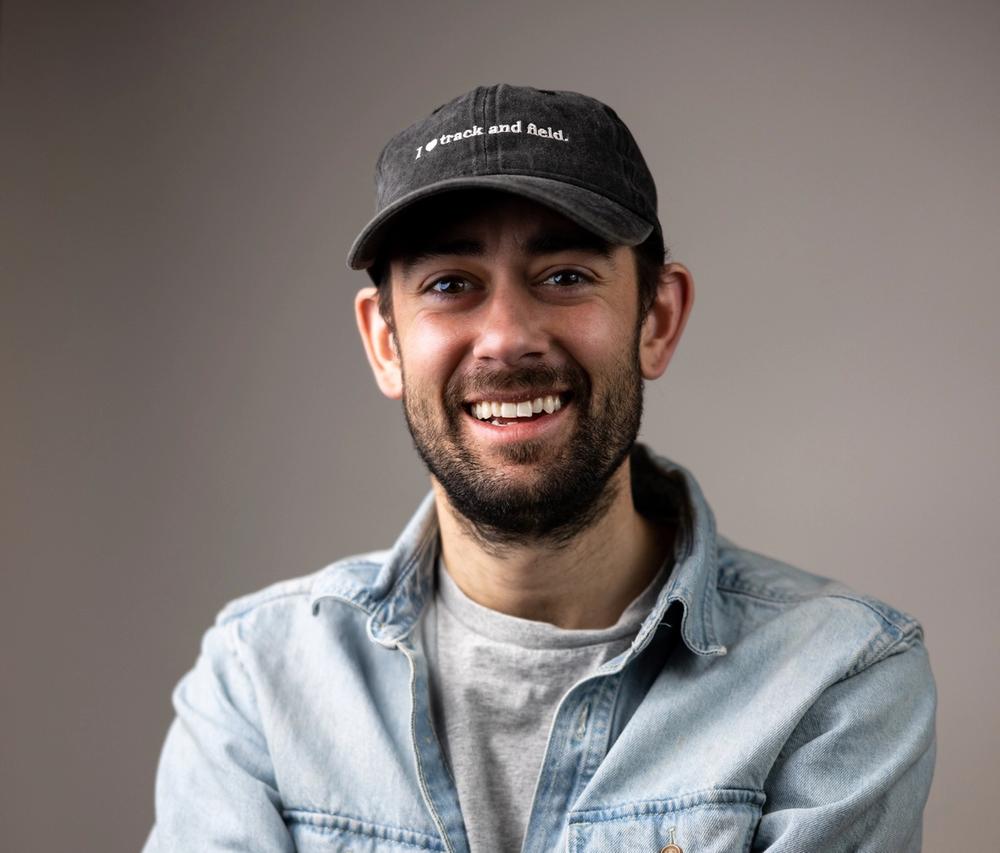
Kyle Merber
After hanging up his spikes – but never his running shoes – Kyle pivoted to the media side of things, where he shares his enthusiasm, insights, and experiences with subscribers of The Lap Count newsletter, as well as viewers of CITIUS MAG live shows.
